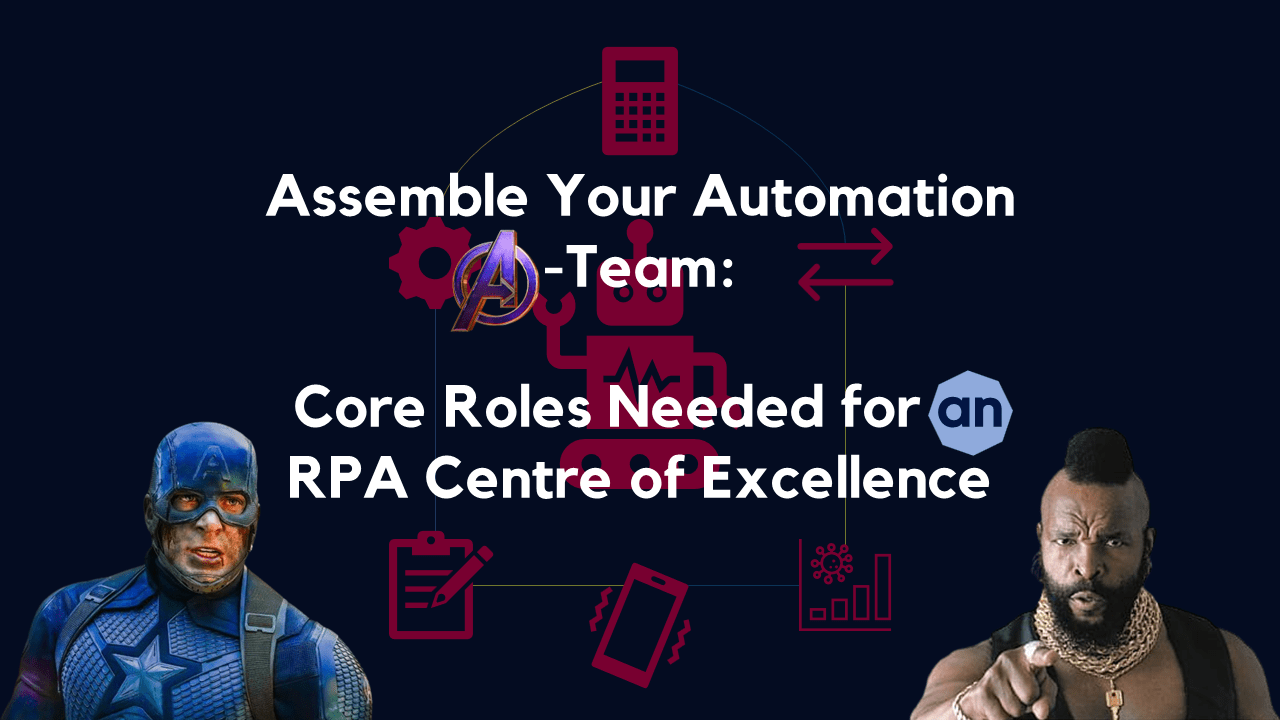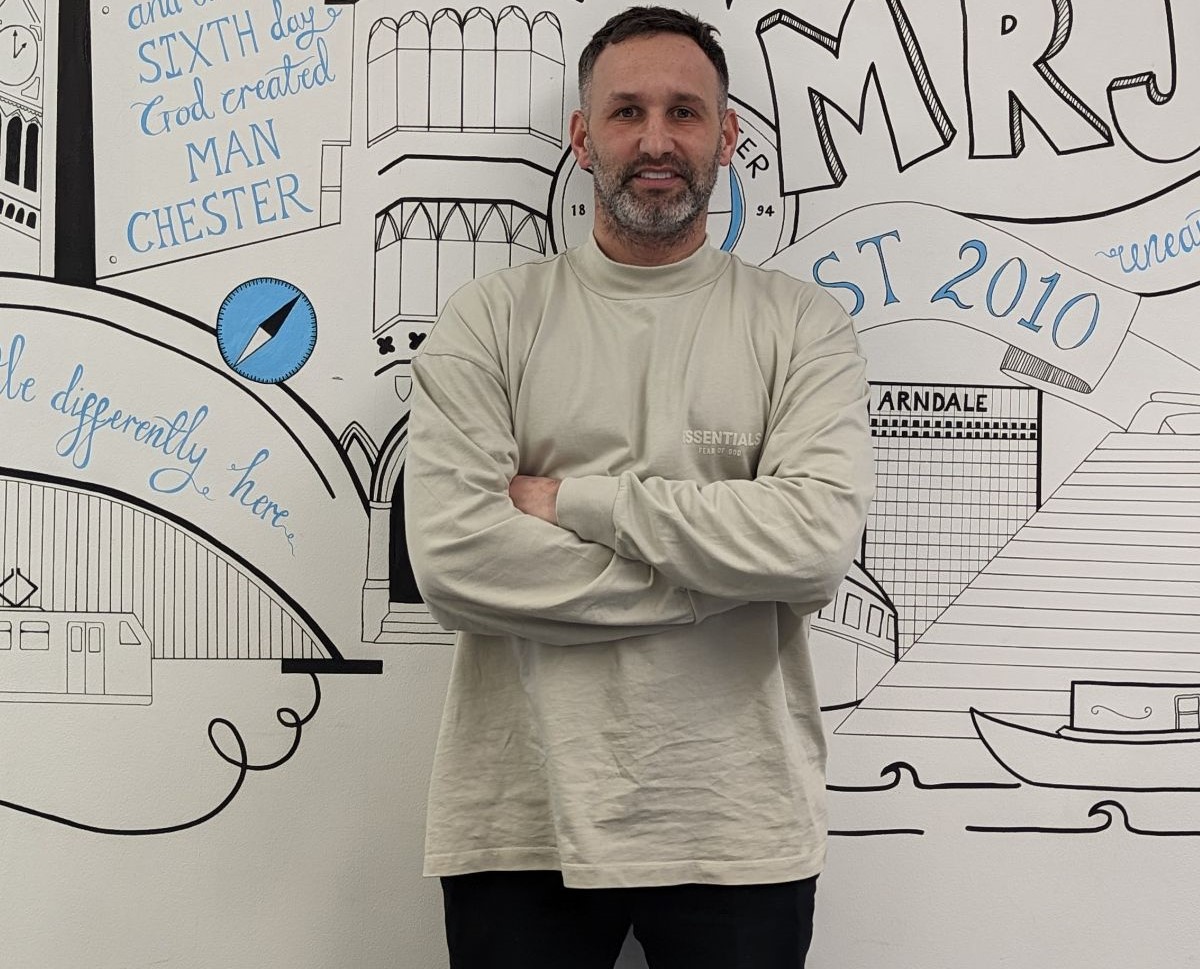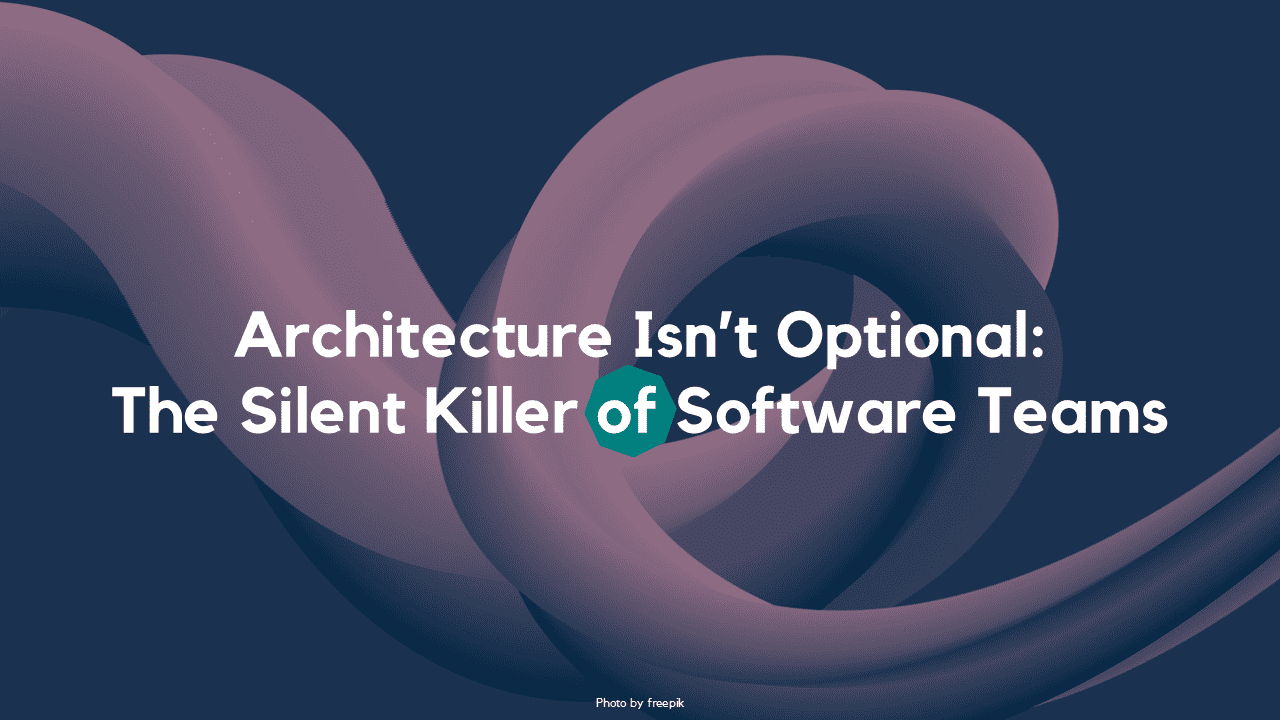Assemble Your Automation A-Team: Core Roles Needed for an RPA Squad
23 Apr, 20249 minutesIn the age of digital transformation, brands looking to streamline operations and enhance ef...

In the age of digital transformation, brands looking to streamline operations and enhance efficiency are increasingly turning to Robotic Process Automation (RPA) solutions. Recent findings list 98% of IT leaders have confirmed that automating company operations is essential for generating financial gains whilst 79% of workers surveyed named increased productivity as one of the main benefits of using automation.
But for companies considering making the jump – What type of tech talent do you need?
Building a successful RPA Centre of Excellence requires a strategic approach and the right mix of expertise. But who helms the ship? Who is the mastermind behind turning visions to actionable realities?
While we previously discussed the core roles for a basic product team, building a truly successful RPA initiative requires a more specialised group. With any team rundown though, it’s important to remember that the ideal RPA team composition will differ slightly depending on your company's specific needs, goals, and industry. For instance, a tech company's RPA team might look different from a retail brand. It's all about catering your team to your specific needs - Like any tech team though, overtime you can begin to see patterns emerge and core roles repeatedly stick out. This is where we come in - throughout this blog we'll uncover:
- What is RPA, how does it work & what are the benefits?
- What is a center of excellence (CoE) & why is it ideal for RPA implementation?
- Essential players in RPA teams
- Optimising your RPA team for success
But first, what is RPA?
What is RPA all about? It’s essentially a process of imbedding software robots that can mirror and handle task usually reserved to humans such as data entry, processing, and communication. Many time-consuming administrative tasks can now be done at the drop of a hat using RPA with noteworthy tasks it can automate including, but not limited to:
- Data extraction and manipulation
- Invoice processing
- Customer onboarding
- Order fulfilment
- Report generation
Benefits of RPA:
Whilst our intro describes some of the finding’s organisations have encountered in the real world, if done and implemented properly there’s many other advantages companies can gain. Some topline examples include:
Reduced costs: In executing automation successfully, a company can significantly reduce the need for manual labour, leading to cost savings and time-consuming tasks being accounted for without the need for budgets having to be stretched further to hire additional contract workers.
Improved accuracy: RPA is highly precise and data driven, reducing the chance of errors and ensuring data integrity. Of course, with any attempts at automation, it’s important to remember the tech isn't infallible and can make mistakes, however for the number crunching, admin tasks, it’s an indispensable tool if used correctly.
Enhanced compliance: RPA helps businesses adhere to regulatory requirements by automating compliance-related tasks.
Freed-up human resources: With RPA handling repetitive tasks, employees can focus on higher-value activities that drive innovation and growth.
Potential sectors that could benefit from RPA implementation include:
- Financial services: Automating account reconciliation, loan processing, and fraud detection.
- Healthcare: Streamlining patient data management, appointment scheduling, and insurance claims processing.
- Manufacturing: Automating production planning, inventory management, and quality control.
- Retail: Enhancing customer service, order fulfilment, and supply chain management.
What Is a Centre of Excellence?
With RPA’s outlined, let’s next break down the concept of a centre of excellence (CoE). A CoE is a central hub of knowledge within an organisation that acts as a one-stop shop advocate for the particular tool, technology, concept skill, or even entire field of study. They become the go-to resource for everything related to their focus area. Need help mastering a new software? Curious about the latest best practices in customer service? The CoE is the place where all members should be directed to.
Advocates for Progress: CoEs aren't just sources of knowledge – they're champions for progress. In a centre of excellence, it’s their job to actively promote the adoption and utilisation of their chosen tool, technology, or concept across the entire organisation and ensure everyone relevant is clued in on its benefits and actively using the tool as intended. Think of them as a cheerleader for a team – encouraging participation… only with less gymnastics.
Bridging the Gap: CoEs act as a bridge between silos, fostering collaboration and knowledge sharing across different departments. They identify areas where expertise is lacking and proactively address them, ensuring everyone has the tools and understanding they need to succeed.
An effective way to think about a CoE is to see them as the opposite of a siloed team. They actively break down barriers, promote information flow, and ensure everyone is on the same page.
With the definition of a Centre of Excellence explained, it's evident why this team structure is ideal for a field like Robotic Process Automation (RPA), which focuses on making data tasks more efficient. It's logical to expect resistance from those wary of change when moving from manual to automated processes.
This is where an RPA Centre of Excellence plays a crucial role. By offering training and support, the CoE can help alleviate concerns and facilitate the smooth adoption of RPA among employees. With the outline of Robotic Process Automation now defined and why it’s well suited to the Centre of Excellence format, we can now begin breaking down the basic roles that makeup the team!
1: Head of Engineering:
Rough Salary Benchmark - £90k – £100k
The Head of Engineering for an RPA Centre of Excellence serves as the driving force behind the entire team. It is their responsibility to supervise all operations, provide strategic direction, oversee technical architecture, and ensure full alignment with the brand's overall business goals. Being the main pillar for RPA within a centre of excellence, a head of should be clued in and able to choose appropriate RPA tools and technologies based on the profile and needs of the specific company.
Beyond merely driving RPA adoption across the broader business, a good head needs a good team behind them and thus should have ample experience and enthusiasm for motivating teams to achieve their best within a positive, independent work environment.
Tangible results are also absolutely essential in a Centre of Excellence environment, requiring direct and concrete proof that dedicating a specific area of the business to one focus is an effective strategy. With buy-in needing to be maintained constantly, a Head of Engineering will need to support all decisions and goals with ROI – this can involve leading business process review workshops with the aim of documenting current process pain points and identifying opportunities for automation
General skills required:
- An understanding of Lean & Six Sigma methodologies.
- Skilled at removing waste & unnecessary variations from processes before automation is implemented
- Educated to degree level in a computer science related field
- Proven ability to create milestones and progress of plans for your team that help keep everyone on an equal level playing field.
2. Solution Architect:
Rough Salary Benchmark - £70k - £80k
The Solution Architect plays a pivotal role in designing and implementing RPA solutions that meet the specific needs of the brand. They collaborate with business stakeholders to understand their pain points and develop tailored automation strategies. They’re often referred to as the face of automation as they’re essentially the architects for the RPA solution design, ensuring it is effectively following agreed practices and stable and scalable.
Being arguably one of the most important components to an RPA team, a solution architect will also be tasked with finding the appropriate set of tools needed to build the solution and supporting each phase of RPA lifecycle right from "Requirement Gathering" to "Hypercare".
As such a Solution Architect needs to be fully up to date with the RPA product and roadmap and comfortable juggling multiple projects and working to different deliverables.
General skills required:
- Experience writing solution design documents
- Familiar with making, defining, Troubleshooting, Debugging code reviews
- Knowledge of .Net, C# & VB
- Skilled with core programming languages
- Up to 2+ years as an RPA Developer
3. Project Manager:
Rough Salary Benchmark - £50k – £60k
The Project Manager is responsible for planning, executing, and monitoring RPA projects. They ensure timely delivery, manage resources effectively, and track progress against agreed-upon timelines and budgets.
Understandably, being organised and heavily detail oriented is a massive component of this role, with an ideal Project Manager being a figure that can assure qualitative and cost-constrained automation programmes/projects meet business requirements and deliver tangible results.
In addition, with every project prone to risks or errors, ranging from technical challenges to organisational resistance, it’s a Project Manager’s job to proactively identify potential risks and develop mitigation strategies to minimise their impact. They maintain open lines of communication with stakeholders, fostering transparency and trust while navigating through uncertainties.
General skills required:
- Project management experience
- 3+ years of experience in project management
- Comfortable with Lean Six Sigma process methodologies
- Exposure to the latest RPA tools and frameworks (Automation Anywhere, UiPath, Blue Prism, Pega)
4. Business Analyst:
Rough Salary Benchmark - £45k-£55k
The Business Analyst serves as a bridge between the business and technical teams. They analyse business processes, identify automation opportunities, and document requirements to ensure that RPA solutions align with the brand's strategic objectives. Having identified inefficiencies, its a business analyst's job to then design all the plans to automate tasks and work with teams to implement and support the solutions.
General skills required:
- Comfortable gathering business requirements, functional designs and process design
- Experience identifying potential automation opportunities across a business and from that, creating an RPA strategy
- Familiar with the process of making PDDs (Process Description Document), and SDDs (Solution Design Document)
5. Developers:
Rough Salary Benchmark - Mid-level - £45k-£55k – Senior £55k-60k
Developers are the hands-on experts who build, test, and deploy RPA solutions. They possess strong technical skills in RPA tools and programming languages and work closely with the Solution Architect and Business Analyst to bring automation visions to life. With there being many types of RPA teams, to be a truly successful developer in the RPA space require someone malleable that can pivot and move between processes as needed.
From process analysis to bot testing and programming, RPA developers do it all and play a hugely important role in the successful implementation and optimisation of robotic process automation solutions within organisations, driving efficiency and accuracy.
Hard skills often called upon for Developers include:
- Programming (Python, Java, C/C++, etc.)
- RPA platform knowledge (e.g., SS&C Blue Prism)
- Integration (APIs)
- Testing and debugging
Optimising Roles for Smaller Teams:
In the case of smaller teams, certain roles can be merged or combined to maximise efficiency. For instance, a Project Manager can potentially assume some Business Analyst responsibilities, and a tech lead with hands-on expertise can fulfil the role of a Solution Architect. This approach ensures that critical functions are still covered without overstaffing.
Conclusion:
Building a robust RPA automation team requires a well-defined structure and a diverse range of skills that can vary depending on overall project goals and budget constraints. However, with this basic setup and team outlined you’ll be in a solid position to embark on your RPA goals. At MRJ, our extensive expertise and longstanding track record speak volumes when it comes to cultivating thriving automation teams throughout the UK and Northwest. For a first-hand glimpse into our capabilities, feel free to explore our EVRi case study!




